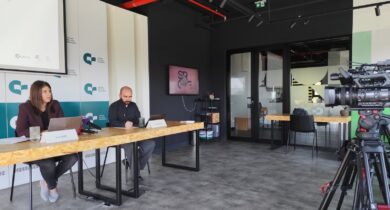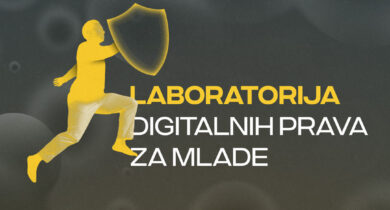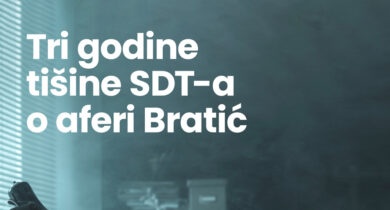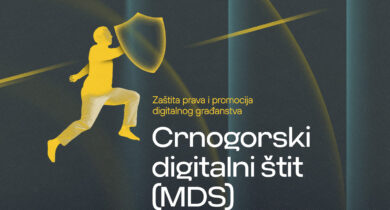Striking the rights balance between protecting society and safeguarding the rights of minors is essential in ensuring their full reintegration, resocialization, and development of their full potential within the community. Only through a coordinated and professional approach of judicial and social institutions can the law become a real tool for preventing criminal behaviour and supporting… »
Actual
Peace is built through freedom, not by restrictions
On the occasion of the International Day of Peace – 21 September, the Centre for Civic Education (CCE) reminds that peace is not a permanently acquired state, but the result of continuous effort. This year’s United Nations theme, “Act Now for a Peaceful World”, emphasizes the crucial importance of taking concrete steps – from decision-makers… »
UN special rapporteur warned the Government of Montenegro about violations of the right to privacy in the draft Law on the NSA and requested a public debate
The United Nations Special Rapporteur on the right to privacy, Ana Brian Nougrères, sent a letter to the Government of Montenegro expressing serious concern regarding the Draft Law on the National Security Agency (NSA). It should be recalled that the Draft was withdrawn from parliamentary procedure at the end of July under pressure from NGOs… »
Local authorities in the service of hatred
Non-governmental organizations and civic activists are warning of a dangerous wave of pro-fascist ideological revisionism in Montenegro, which now includes the promotion of a book that glorifying Chetnik commanders, collaborators of Hitler and Mussolini. The book titled “Knights of the Karađorđe Star of the Yugoslav Army in the Homeland (JVUO) 1941–1945” will be presented on… »
Call for Participation in the Digital Rights Lab for Youth
Centre for Civic Education (CCE) announces a CALL for participation in the DIGITAL RIGHTS LAB FOR YOUTH If you are between 18 and 30 years and want to gain skills to protect rights in the digital space, where young people spend most of their time, then the Digital Rights Lab for Youth is the right… »
Three years of silence from the SSPO on the Bratić case
The Centre for Civic Education (CCE) reminds that we are entering the third year since the filing of the criminal complaint against the responsible persons in the Ministry of Education, Science, Culture and Sports (MESCS), based on the double negative opinion of the State Audit Institution (SAI). We express concern over the persistent ignoring of… »
Between Europe, the Church and growing devisions
On Montenegro’s path to the EU, the main problems are the incompetence, irresponsibility, and impunity of those in power, while the influence of the church has been turned into a political resource rather than a spiritual stronghold, these are some of the highlights from the interview with Zdravko Krivokapić, in the first episode of the… »
Tender for submission of offers for accommodation and conference services for the organization of the Digital rights lab for youth
Centre for Civic Education (CCE) announces TENDER for submission of offers for accommodation and conference services for the organization of the Digital rights lab for youth The Centre for Civic Education (CCE), within the project “Safeguarding Rights and Promoting Digital Citizenship – Montenegro Digital Shield (MDS)”, financially supported by the European Union and co-financed by… »
The Minister of Defence Must Ensure Equal Access to All Media
We strongly condemn the decision of the Minister of Defence, Dragan Krapović, to deny access, without any legal basis, to certain media outlets – Antena M, Analitika portal, TVE and ETV portal – at the Ministry of Defence press conference. We remind that the Media Law, Article 38, Paragraph 1, clearly stipulates that accreditation cannot… »
Guide for Recognizing and Reporting Digital Violence
The era of accelerated digitalization, alongside with its benefits, also brings dangers, particularly when it comes to human rights. The generations of young people growing up in the digital age are the most vulnerable, while in Montenegro there is low trust in the competent institutions regarding the reporting of online violence, as well as a… »









